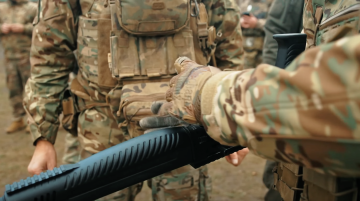The situation in the Pokrovsk direction continues to escalate as Russian troops attempt to seize strategically important sites and advance towards key defense points.
In particular, it has been reported that Russian forces captured Mine No. 3 in the village of Pyschanoe. This was elaborated on by Igor Romanenko, a lieutenant general and former deputy chief of the General Staff of the Armed Forces of Ukraine, during a broadcast on Politeka Online.
This mine was a crucial site for the extraction of coking coal, used in metal smelting, and its closure was announced back on December 12 due to the advancing front. The situation around Pokrovsk is becoming increasingly tense.

Military expert Igor Romanenko notes that Russian troops are actively trying to capture the territory around Pokrovsk, employing flanking tactics and attempting to block logistical routes. The enemy has also intensified attacks on the city of Kurakhovo, which serves as an important logistical hub to the west of Pokrovsk. This poses a serious threat to the Ukrainian Armed Forces units located there and escalates the situation to a critical level.
"At the same time, Russian forces are attempting to breach the Ukrainian defense through areas to the southwest of Pokrovsk, particularly in the regions of Nova Vasylivka and Yasynuvata, where fighting continues. In recent days, clashes have intensified near Uspenivka, which is just a few kilometers from the front line," the expert noted.
According to Romanenko, while the Russians have achieved some success in capturing territories in the Pokrovsk direction, their resources and manpower are limited, making significant advancement difficult.
"To continue their offensive towards Dnipropetrovsk, Russian troops will need to concentrate significant forces, which requires time and considerable resource expenditure," the expert remarked.
Currently, amid tactical maneuvers and limited capabilities for deep advancement, the primary objective of Russian forces is to block Ukrainian units and cut off their logistical routes, which could play a decisive role in the further developments in this region.